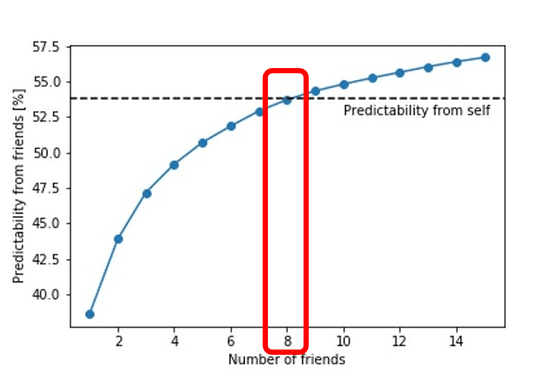It is pointed out that the algorithm of the 'recommended function' of the Internet service has a great influence on people

Many people have clicked on the 'Recommended movie to watch next' that appears after watching content such as Netflix or YouTube. Experts explain the impact of algorithms such as the
Do social media algorithms erode our ability to make decisions freely? The jury is out
https://theconversation.com/do-social-media-algorithms-erode-our-ability-to-make-decisions-freely-the-jury-is-out-140729
Luis Mitchell, a math instructor at the University of Adelaide in Australia, and James Baglow, an associate professor of statistics at the University of Vermont in the United States, liken the recommendation feature of internet services to a 'recipe.' However, this recipe does not make delicious food from ingredients, but to generate 'better advertising revenue' from 'data about people'.

Gathering data about people online is extremely easy for the big IT companies that run social media. For example, in a study conducted by Mitchell et al. In 2019, `` Analyzing the tweets of 8 to 9 friends of a Twitter user predicts the content of the tweets with the same accuracy as directly analyzing the data of the person's account. It is possible to do it. '
The figure showing that is shown below. The vertical axis of the graph shows predictability, the horizontal axis shows the number of friends who provide the data used for analysis, and the line shows the case where the data of the person is directly used when there are 8 friends. It intersects with the black dotted line. 'It's enough to have eight to nine friends for the algorithm to predict future posts for Twitter users, as if they were using their own data,' Mitchell and colleagues commented on the results. Stated.
Facebook also creates profiles for non-Facebook users called ' shadow profiles '. So, Mitchell and colleagues pointed out, 'Even if you haven't registered with Facebook, if your friends are using Facebook, you may have a profile.'
The collection of data by social media is not just a privacy issue, it also causes users to be driven by more and more radical content through the recommendation function.
Guillaume Chaslot, a programmer who has worked on the recommendation function on YouTube, said, 'YouTube is distorted to waste more time. On YouTube, total views are everything. I believed in, and the other thing was regarded as a thing all trivial ' testimony . He said that the algorithms used to increase views and users have become radical and are the cause of the outrage, such as posting a movie showing the body of a suicide victim. ..
What did YouTuber Logan Paul, who is on fire all over the world, do in Japan? --GIGAZINE

In addition, in a large-scale 2014 survey of about 700,000 Facebook users, 'If you see a positive post, you will post a positive post, and if you see a negative post, you will post a negative post.' that there is a 'emotional contagion' that it turns out we are. From this, Mitchell et al. Pointed out that 'Facebook's news feed algorithm maintains our interest in the platform by ranking and displaying content.'
However, not all of the negative effects seen on social media are due to algorithms. A 2018 study focusing on the spread of fake news on Twitter also found that it was the average person, not the bot, who spread fake news .
In light of these cases, Mitchell et al. 'After all, there is a human being behind every algorithm. Just as an algorithm affects us, we influence it. ', And concluded that the impact of the recommendation function algorithm and its problems depend on the person using the algorithm.
Related Posts:
in Web Service, Posted by log1l_ks







